Calais Jungle eviction: How Gynaecology Without Borders is working to protect vulnerable pregnant migrants
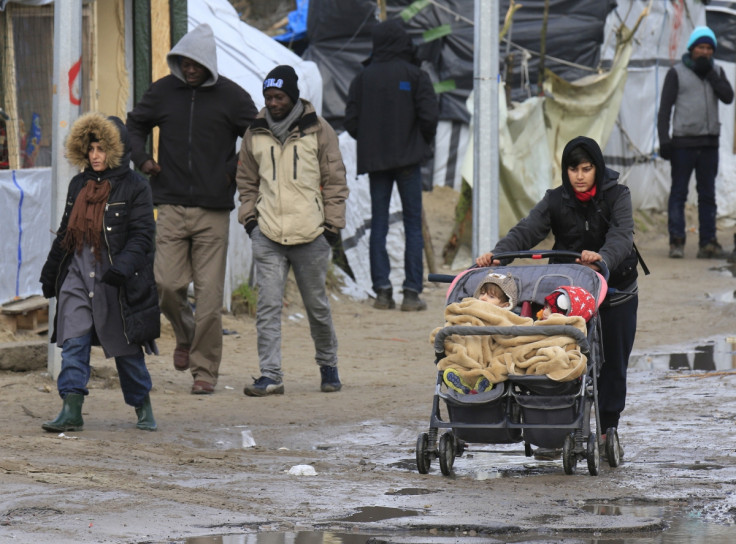
It was a dark week in Calais. On Thursday 25 February, the French government's plan to demolish the southern part of the "Jungle", the largest migrant camp in the country, was approved by a French court in Lille.
Between 3500 and 5000 migrants live there, in squalid conditions. Authorities say around a quarter of them will be affected by the eviction plan, but places of worship, schools and other infrastructures ran by NGOs would be allowed to stay in the area.
One of these is Gynaecology Without Borders (GSF), who has been on the ground since October 2015 to provide much needed healthcare to women, especially those who are pregnant. Amongst the migrants that live in the Jungle, and in the smaller camps around it, women make up between 700 and 1000 of the total.
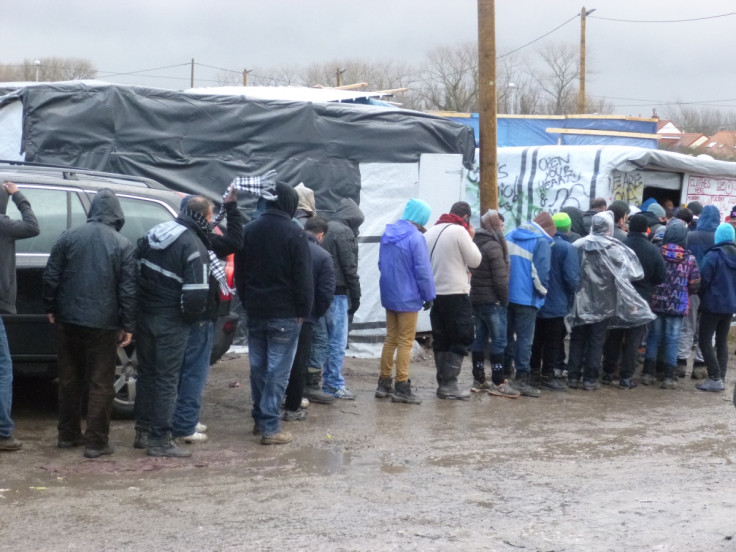
Where their male counterparts face violence and discrimination, the women often face even more dire situations. "Sexual violence, gender violence, prostitution and unwanted pregnancies are common", says Richard Matis, vice president of GSF.
In the Jungle volunteers have long struggled to reach women, but slowly, GSF staff are earning their trust. Now, with the very existence of the Jungle being threatened, pressure has increased on the Calais refugees to cross the border, and all these efforts to reach women might be shattered as more attempt the dangerous journey to the UK.
Pregnant in the camp
Clutching to their scarce possessions, Naima (name has been changed on her request) and her husband hide in their makeshift shelter as the cold February rain pours down. Fleeing Afghanistan, they arrived in the Calais camp two months ago, and only have one hope: to settle down in the UK.
Naima is seven or eight months pregnant, it's hard to tell because she has never benefited from a regular scan. She cannot speak English nor French, but she smiles a lot, a sad, soft smile.
Valérie, a volunteer midwife for GSF, pays her a visit. She has booked Naima in for a visit at Calais's hospital at the end of the week. There, some tests will be run, and the expectant mother will be checked up by another midwife, who will assist her during the birth.
Working with the city's hospital is one of GSF's most important mission. A large part of the volunteers' job is to accompany the women to official medical structures, and ensure they get a proper follow-up, especially if they are pregnant. It is difficult to estimate how many women are in that case, but GSF sees about 40 of them, in Calais and in the surrounding smaller camps.
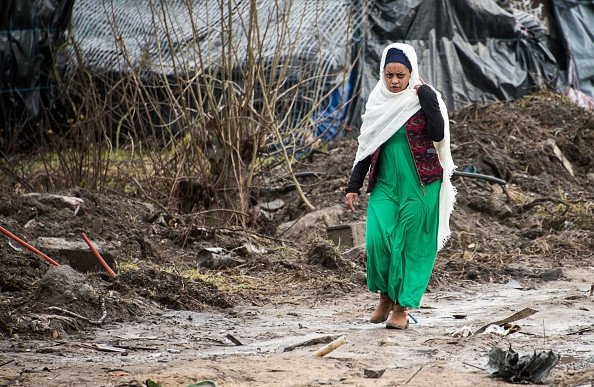
When she hears the news of the appointment however, the smile disappears from Naima's face. In broken English, her husband asks Valerie, "if there is no way to get an appointment sooner".
For the young couple, who has put everything they have in the balance to reach the UK, waiting in Calais is no longer an option, especially with the evacuation of part of the camp looming. They want to try crossing at all costs, even if Naima is pregnant, and they fear being delayed by the medical appointments.
Fear of stigma
This situation is not at all uncommon. Like Naima, most women want to cross at all costs, even if they are sick, or expecting a baby. They fear that going to see official health workers will mean sharing personal information that could then be passed on to the police. They worry about being transferred to detention centres and forced to register in France, effectively delaying, or worse, ending, their English dream.
"Our biggest difficulty today is earning the trust of the women, and convincing them that we will not give them away to the police", says Valerie, "Those women are scared, they have to keep warm, to eat, and to survive on a daily basis. They want to cross the border. Their health is really not their priority".
In the morning, GSF volunteers walk through the dirty alleys of the Jungle, as the camp slowly awakes. Sitting on little plastic chairs, caked with mud, men are smoking or talking amongst themselves.
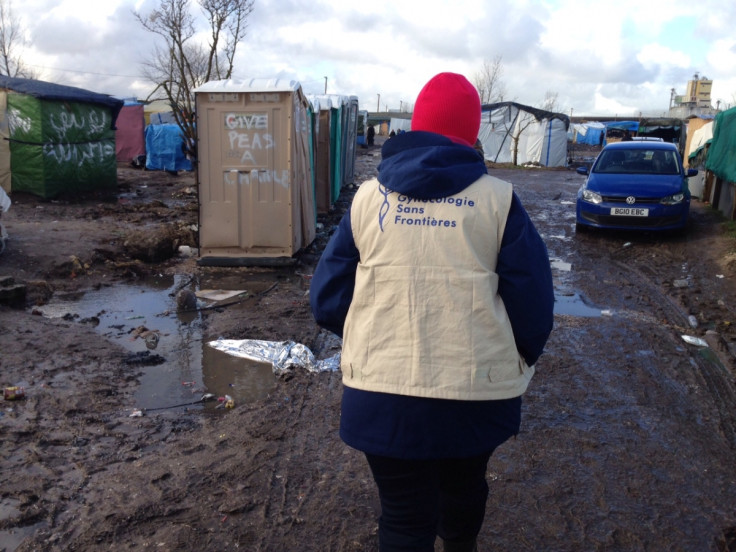
Women are invisible, except for a group of little girls playing in the mud. Valerie believes that women hide because they are scared, not only of sharing their identity with doctors, but also of the judgement of their peers.
"Women are reluctant to come to us because they might be stigmatized by their communities if they consult for reproductive health issues. They sometimes feel ashamed of discussing such intimate problems with strangers", she says. GSF staff therefore has to go through a long process of gaining the women's trust, which is not always easy, as they are often unable to communicate.
Hannah, a young and friendly Jordanian girl, has been hired to serve as an Arabic translator. This is a great step forward for GSF, who usually struggles to bring in women who speak this language for medical check-ups. Yet it is still not enough to reach many others, who only understand local dialects, or to dialogue with the growing Kurdish community.
Quick solutions
Later during the day, Naima returns. She is worried, because she has not felt her baby move in two days. GSF staff are able to reassure her by performing an emergency sonogram, thanks to a portable device stored in the NGO's mobile dispensary.
GSF works hard to help women, but because of the precarious environment complex medical acts cannot be performed in the camp. To deal with emergencies such as in Naima's, the NGO has had to come up with quick solutions.
They travel in a mobile dispensary van, which enables them reach women in remote parts of the camp, to drive them to safety, and to conduct basic sonograms and pregnancy follow ups, in a quick and effective manner.
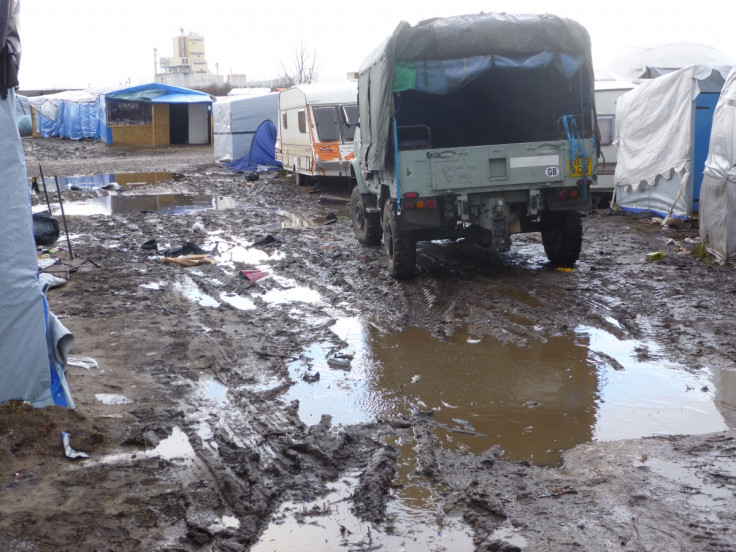
Very recently, a nursing station has been set up for them at Zimako's. Zimako is a Nigerian refugee, known in the camp for creating the first school of the Calais Jungle in a small and colourful shelter. He now provides GSF with a safe and clean space for their consultations.
However, frustration remains high amongst the staff. "Naima's baby looks fine, but I am nervous, because the little sonogram I performed is not enough to check everything. I could have treated her much better outside the camp. That's why it is so important to convince the women to come to the hospital", confides Valérie.
An uncertain future
As the plan to evacuate the camp gets the go ahead, the future of the women of Calais is uncertain. Zimako's nursing station is located in the part of the camp which is due to be evacuated. The prefect of Calais has promised that it will stay, but when the shelters around it go, it will become a no-man's land, difficult to access for GSF's patients.
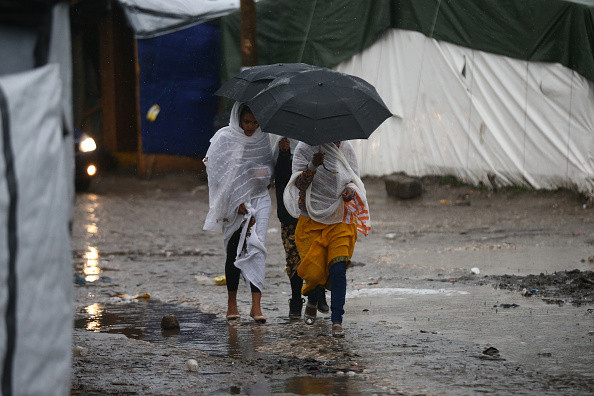
"We have no visibility about what will happen. We might keep the infrastructure but if no one lives around it, it will be impossible for us to help anyone in this part of Calais " says Richard Matis.
This is also the opinion of Pascale Marty, a doctor with NGO Doctors Without Borders. She has sent a number of women, both to GSF and to local hospitals, in the past few months. Now, she fears that there won't be anyone left to send if the evacuation of the Calais camp does happen.
"The women cared for by GSF will disappear from their radar and ours with the dismantlement of the camp" she says. "If their shelters are demolished, women will go even deeper underground, to hide from the authorities. It will be impossible to track their movements, let alone the ones that are pregnant so that they can give birth in the secure walls of the hospital."
© Copyright IBTimes 2025. All rights reserved.






















